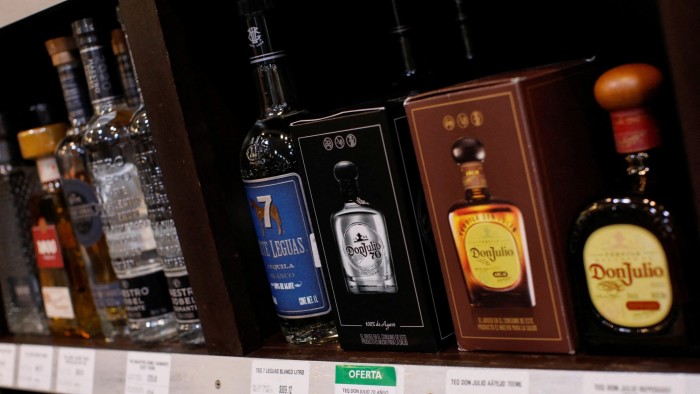Unlock the Editor’s Digest for free
Roula Khalaf, Editor of the FT, selects her favourite stories in this weekly newsletter.
Few purveyors of alcohol will be toasting the new year. Just three days in to 2025, the US surgeon-general was advocating labels to warn drinkers of the link to cancer. This time next year, Ireland will be health-labelling its drinks.
The sector has little to be merry about in any case. Abstinence is in vogue, at least in swaths of the developed world. The ranks of US adults aged 18-34 who have “ever” drunk an alcoholic beverage has fallen from 72 per cent to 62 per cent over the past two decades, according to Gallup polling. As if lower sales are not headache enough, tariffs mooted by US president-elect Donald Trump stand to erode earnings.
This starts to smack of structural decline. So far, the weak Chinese consumer — quaffing a tenth of Pernod’s net sales — and a natural slide from the Covid-inspired boost, had all the hallmarks of a cyclical downturn. Share prices and valuations duly crumpled. UK-listed Diageo, with shares off by a tenth last year, looks relatively unscathed beside France’s Pernod Ricard, nearly 30 per cent, and cognac maker Rémy Cointreau’s 40 per cent.
Reflecting a deeper fall, expect analysts to scratch earnings estimates lower — if companies don’t beat them to the punch and do so at upcoming quarterly results.
Introducing tougher regulations can do serious damage to earnings. Big Tobacco turned to vapes as part of its efforts to offset clampdowns on conventional cigarettes, but regulators followed suit and vapes went up in smoke. Marlboro maker Altria wrote off virtually its entire $12.8bn investment in Juul before exiting.
Still, the beauty of beer goggles is the ability to see the glass half full. Drinking follows classic rules: most is done by the minority. In developed markets about 60 to 90 per cent of alcohol is consumed by the top 20 per cent of drinkers, according to Bernstein. These hardened souls are far less likely to be deterred by warnings.
Big tobacco also offers a handy playbook. Cigarette manufacturers doubled down on less-rich countries, where rules are laxer. Philip Morris International in 2005 went so far as to buy clove cigarette maker Sampoerna in Indonesia, where smoking rates approach double those of the US. In the past decade, PMI’s annual net revenues have only shrunk meaningfully twice.
Distillers and brewers have not been slouches. Many rushed to China and other places where burgeoning middle classes were coming of age in the noughties. They have also picked up non-alcoholic beverages such as Seedlip, gaining exposure to teetotallers.
Those only go so far. Economic malaise makes China a poor prop. Unlike vapes, non-alcoholic drinks won’t attract regulatory wrath, but presumably consumers will at some point question why they are forking out alcoholic prices for fancy pop. Investors have been warned.
Read the full article here

